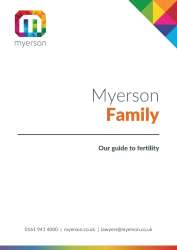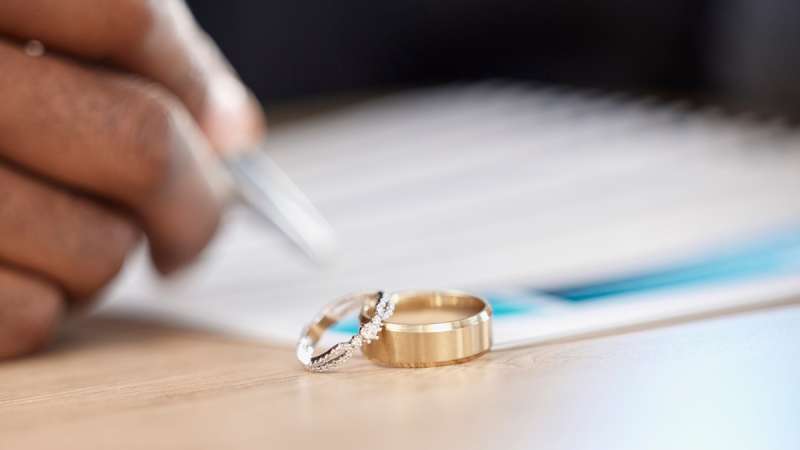Fertility & Surrogacy Law
Deciding to start a family can be one of the most exciting decisions that you make in life. There are various routes to parenthood, and however you decide to start a family, it is important to seek legal advice on:
- parental rights
- consent to treatment
- donor rights
- freezing your eggs/sperm
- surrogacy or adoption
The law surrounding assisted reproduction and surrogacy is complex and distinct from traditional family law and principles. Our fertility and surrogacy solicitors have specialist expertise in this fast-developing area of law, which means that they can advise modern families.
Our guide should answer any of the questions you may have about parental rights, surrogacy and donors.
If you would like to speak with us regarding fertility and surrogacy laws and how we can help, please contact our family law team.
Why Work With Our Family Team?
- Our specialist family law solicitors are experts in complex, high-value divorce, and family disputes.
- Our family law solicitors are recognised by the Legal 500.
- Our family team are all members of Resolution, the largest organisation of family lawyers in the UK, and are dedicated to dealing with matters in a non-confrontational and constructive way.
- Our team were shortlisted for the family law firm of the year (North) and financial remedies team of the year (National) at the Lexis Nexis Family Law Awards 2022.
- Our team work closely with other departments internally, including property, employment, corporate and commercial lawyers, to ensure that your financial needs are protected comprehensively.
- We provide a partner-led service to ensure you receive the very best legal advice and support for your family law issues.
- We have a large team of expert solicitors and can meet your deadlines.
- We are a full-service law firm operating from a one-site office, which means our teams communicate effectively and efficiently.
- We use the latest technology to ensure that we are working as efficiently. Geographical distance is no bar to us from providing excellent client service.
- We provide regular legal updates via our blogs, social media and local radio appearances.
- Look at the Myerson Promise for further benefits of working with us here.
Fertility Video
Fertility Law FAQs
Who is the legal parent after fertility treatment?
The woman who gives birth to the child is always the legal mother, whether or not donor eggs and/or donor sperm were used as part of treatment. If the mother is married or in a civil partnership, her husband, wife or civil partner will usually be the other legal parent.
If the mother is unmarried or not in a civil partnership, signed consent forms will need to be given to the clinic stating who the mother intends to be the legal parent. Provided that the mother and the other intended legal parent sign the correct consent forms, they will both be legal parents of the child at birth.
It is very important that treatment takes place at an HFEA (Human Fertilisation and Embryology Authority) licenced UK fertility clinic, otherwise, this can affect parental rights.
Single parents can also go through fertility treatment. In this scenario, the birth mother will be the only legal parent of the child.
Sometimes, a couple who are not in a relationship will decide to have fertility treatment. This is entirely legal and both of them will have legal parent status if the correct consent forms are signed..
Whatever your situation, your fertility clinic will guide you as to what consent forms are needed. However, you should always get legal advice on consenting to legal parenthood, before your treatment takes place.
It is important to note that legal parenthood as described above is not the same as ‘Parental Responsibility’. Parental Responsibility is only conferred to the non-birth parent if they are married to the mother at the time of birth or, they are registered as the parent on the birth certificate. If there is a dispute about Parental Responsibility, you will need legal advice.
What if my partner withdraws their consent to legal parenthood?
Sometimes, relationships break down and that can result in the other intended parent withdrawing their consent to be the legal parent of any child born. The birth mother also has the option to withdraw their consent to their partner being the legal parent.
Consent to legal parenthood can be withdrawn at any point before the transfer of the embryo or sperm.
If the birth mother is married or in a civil partnership, withdrawal of consent is much more complicated from a legal standpoint. Both parties will likely require independent legal advice in this situation.
Donors
It is possible to donate sperm, eggs or embryos. Donors can choose to donate to someone else’s fertility treatment, fertility research, or both.
The law surrounding donor anonymity has changed over the years. Anyone who donated before 1 April 2005 is automatically an anonymous donor. For any donors who donated after this date, the children born from the donation can ask for their donor’s name and last known address, once they reach 18 years old.
Every year, around 3,500 children are conceived with the help of donor eggs and/or donor sperm. Individuals who can donate often recognise the extraordinary gift they can give and the fact that they do not remain anonymous does not affect their choice to donate.
Storage and future use of embryos
After treatment, you may have excess embryos and you can choose to store these for up to 10 years, for future use (or longer, in special circumstances). After the end of the chosen storage period, the embryos will be allowed to perish.
If the embryos were created using both your eggs and sperm, you can choose how long they are stored for, up to the 10-year limit. However, if the embryos were created using donor eggs and/or donor sperm, the consent of your donor(s) would be needed for the continued storage and future use.
Something important to bear in mind is that donor sperm from one donor can only be used for 10 families. It is therefore possible to “reserve” sperm for your future use. This is an option for those who are wanting further children who are genetically related.
What if the donor withdraws consent to the use of embryos?
If a donor withdraws their consent to further storage or use of the embryo, this will prevent use of the embryo. This can be very disappointing for some parents who would like to have another child who is genetically related to their previous child(ren).
What if my partner withdraws consent to the use of embryos?
If a couple, who previously had fertility treatment together separate, one person could withdraw their consent to the ongoing storage or use of their embryos. This would mean that those embryos can no longer be used, unless the person who has withdrawn consent changes their mind. For that reason, there is a period of 12 months where the embryos will continue to be stored after the withdrawal of consent.
Consent to the future use of embryos can be withdrawn at any point before the embryo is transferred into the intended birth mother.
Some people may choose to store and donate their embryos to fertility research. As above, consent can be withdrawn to ongoing storage and research use at any point before the embryos are used for that purpose.
What is posthumous conception?
Posthumous conception means conception with someone’s egg, sperm or embryo, after they have died.
When someone consents to the storage of their eggs, sperm or embryo, they are also asked what they would like to happen if they were to die or become mentally incapacitated.
Generally, posthumous conception is only allowed when the deceased or mentally incapacitated person has given their written and signed consent to post-death or incapacitation storage and use.
Depending on when the eggs, sperm or embryo were stored, timing can be of the essence. This is because consent to storage and use cannot be extended beyond the original agreed limit (typically, 10 years), once the individual has died.
However, there are some rare exceptions to the general rule which mean that posthumous conception can be allowed when express consent has not been given. In these circumstances, the intended parent(s) will need specialist legal advice.
Preserving your fertility – freezing eggs or sperm
More and more people are planning for their future and for some, preserving fertility is extremely important.
Due to significant advancements in medical technology, it is possible to elect to freeze your eggs or sperm for future use. This is particularly attractive for people who are not yet ready to start a family but may wish to do so later in life. Further, it is a popular option with those who fall ill with certain diseases, such as cancer, when the disease itself or the treatment could affect fertility.
If you are thinking about preserving your fertility, you should visit a HFEA licenced UK fertility clinic for further advice and assistance with the process.
Fertility Clinics - How we can help you
We regularly assist licenced fertility clinics with the legal and regulatory requirements that they need to comply with when providing fertility services.
Myerson Solicitors can advise clinics on:
- HFEA requirements;
- The obtaining of parental consent;
- Donor consent and withdrawal of consent;
- Consent to the storage and future use of gametes;
- Posthumus consent to treatment;
- Other general advice, such as any issues as a result of an HFEA audit;
- Court proceedings/legal action involving the clinic.
Legal Advice on Surrogacy Law
If you are using a surrogate to start a family, you will undergo fertility treatment with your surrogate.
At birth, the surrogate mother will be the legal mother of the child, regardless of the presence of any genetic connection. If the surrogate is married, the legal father will likely be her husband. If the surrogate is unmarried, the legal father will likely be the intended father.
For that reason, after birth, the intended parents will need to make a special court application to obtain parental rights, known as a parental order. Couples and single parents can apply for a parental order.
Commercial or legally binding surrogacy arrangements are not allowed in the UK, like they are in some other countries. There are certain rules that you have to abide by when going through surrogacy and it is important to get legal advice at an early stage, before you start the treatment process.
It is possible to use a surrogate from another country and have your fertility treatment abroad. If you are using an international surrogate, you will also need to get legal advice from a lawyer in the foreign country, as well as in the UK.
Testimonials
Surrogacy Video
Meet Our Family Solicitors
Home-grown or recruited from national, regional or City firms. Our family lawyers are experts in their fields and respected by their peers.
Contact Myerson Solicitors
Complete the form below, or alternatively, you can call Myerson Solicitors on:











